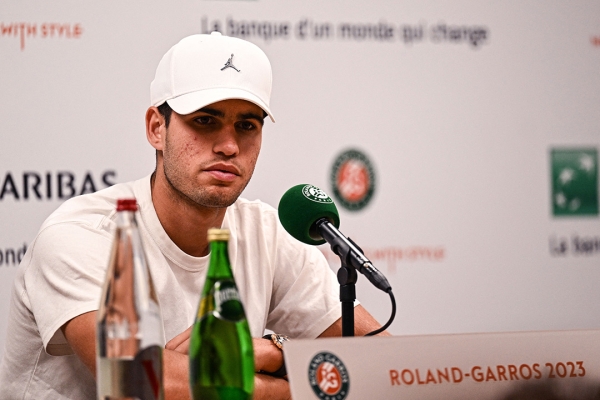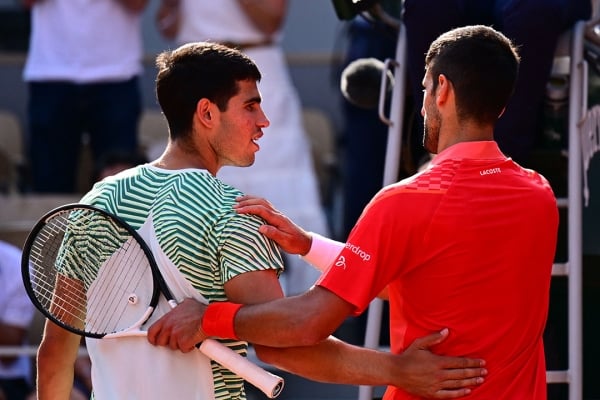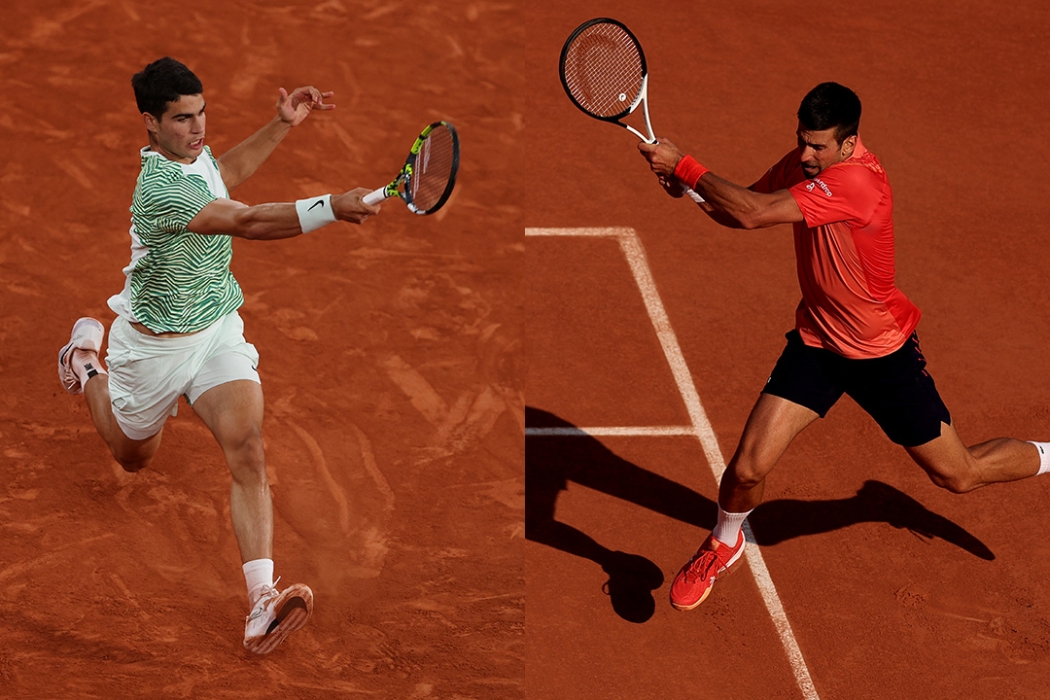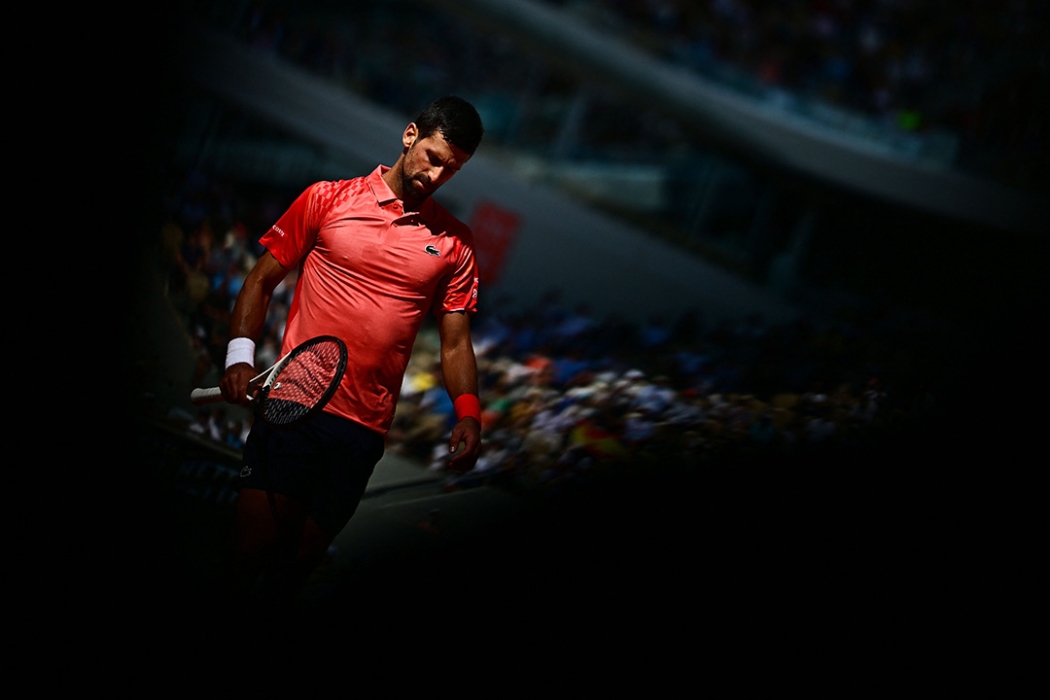It was the match everybody was talking about – including the players themselves.
Both Novak Djokovic and Carlos Alcaraz said, ahead of their blockbuster Roland Garros semifinal, that in order to be the best, you have to beat the best. Djokovic described it as the match a lot of people wanted to see. Alcaraz admitted he had wanted another shot at Djokovic since last year.
But for the young Spaniard, that scenario proved overwhelming.
After the reigning major champions split two gloriously compelling, intense sets, cramps inhibited Alcaraz so much that the third and fourth sets were barely a contest. He lost 6-3 5-7 6-1 6-1.
Djokovic moved into his 34th Grand Slam singles final – he’ll play for a men’s record 23rd major title – while Alcaraz was left to process what happened.
He admitted it was perhaps the most stressed he has ever felt on a tennis court, and believed the cramps were the product of that tension.
“Has been really tough for me today. I have never felt something like I did today,” said Alcaraz, who will surrender the No.1 ranking to Djokovic if the Serb wins Sunday’s final against Casper Ruud.

“I have never felt that tension that I did in that match.
“Is not easy to play against Novak. Of course a legend of our sport. If someone says that he get into the court with no nerves playing against Novak, he lies.
“Of course playing a semifinal of a Grand Slam, you have a lot of nerves, but even more with facing Novak.
“That's the truth. Next time that I'm gonna face Novak, I hope to be different, but the nerves will be there.”
As a US Open champion and the world’s top-ranked player, this was not the first time the 20-year-old Alcaraz was appearing on such a big stage.
But the prospect of overcoming the great Djokovic added an extra dimension for which he was perhaps not prepared.
Alcaraz was beginning to get on top of the 36-year-old in the second set, eliminating errors and enjoying increasing success with his drop shot. He accrued multiple break points and set points which Djokovic ultimately could not keep saving.
Djokovic had come out firing at such a high level that when Alcaraz matched it in the second set, the tennis was at times simply jaw-dropping.
Yet the tension he described in his body throughout those two sets proved his undoing.
Djokovic also felt the effects of this intensity, but said by hanging on at the beginning of the third set, he was able to take advantage of “something unexpected”.
“Being in one of the greatest tournaments of the world, maybe for the first time in his career he was expected to win,” Djokovic said of Alcaraz.
“He was maybe not an underdog, chasing the title and trying to win against a favourite, but it was probably the other way around.
“So maybe that affected him, and as he said, it probably did.
“But it's a part of the learning curve. It's part of the experience. He's only 20… So he's got plenty of time. He's showed so much maturity in the last couple of years.
“His career will be very successful if he manages obviously to keep healthy, because the game is there.”

Djokovic said he had a tremendous amount of respect for his young rival, and predicted big things for Alcaraz’ future.
But as it currently stands, those lofty heights remain just out of reach so long as Djokovic continues to be such a potent force on the sport’s grandest stages.
Should he win on Sunday, Djokovic will have won six of the past eight majors he has contested, and enters the final undefeated in his past 20 Grand Slam matches.
“I'm sure he's gonna win Roland Garros multiple times in the future. I have no doubt about it,” Djokovic said of Alcaraz.
“He's (an) amazing player. Just possesses so much qualities, so dynamic, so much power in his shots, very complete player.
“He already has won a Grand Slam. He's the youngest ever No. 1 in the history of the game. There is a lot to be excited about for him, for the future.
“I wish him fast recovery. I'm sure he will be back strong.”

